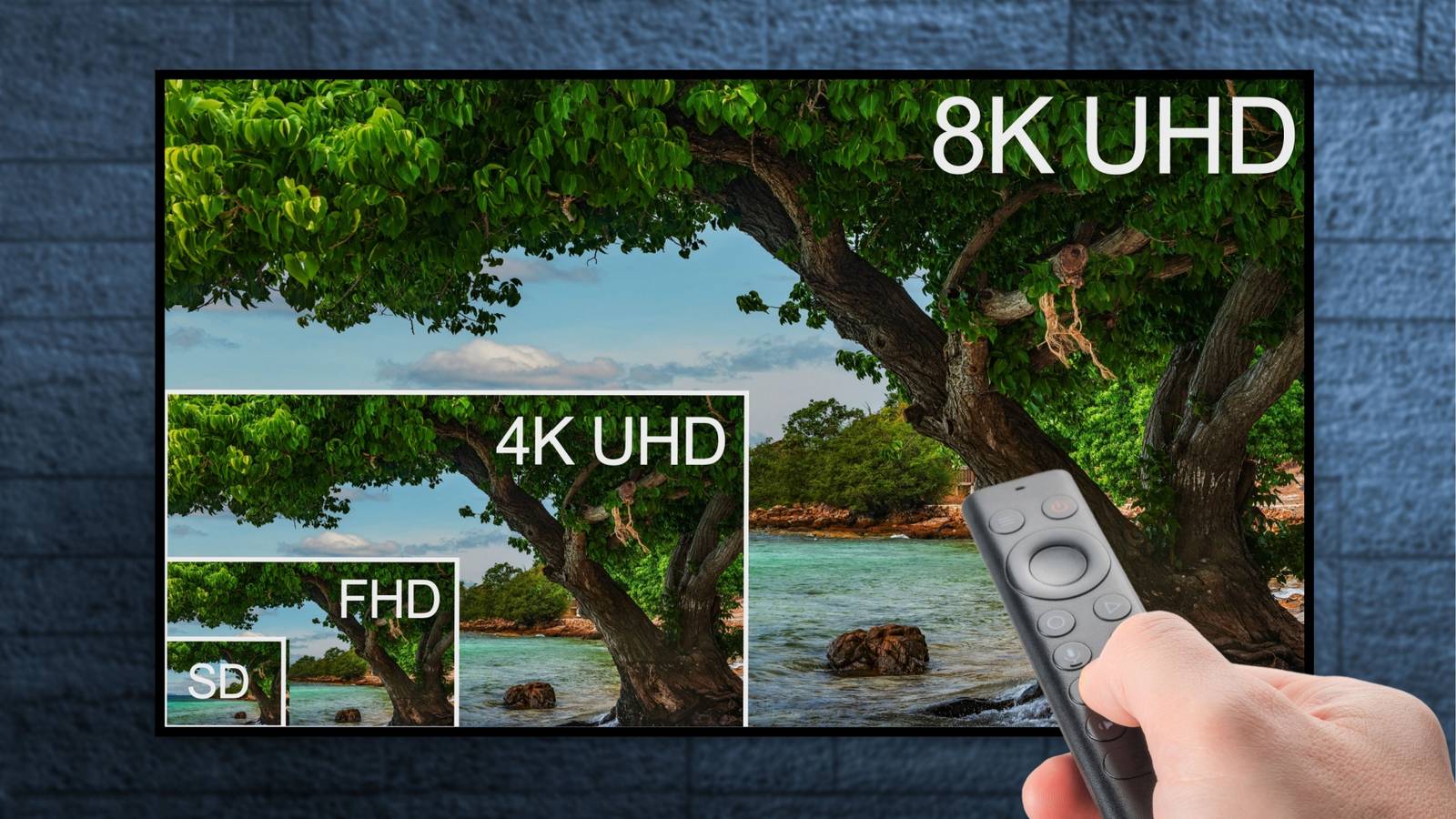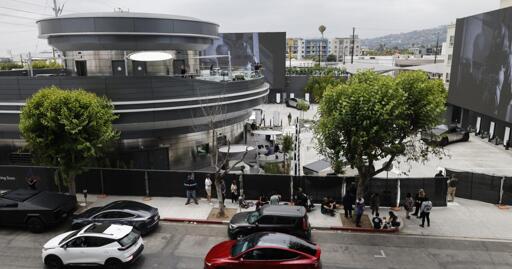Big Surprise—Nobody Wants 8K TVs
-
I'd buy a 8k TV, provided that it has no smarts, no WiFi, no TV tuner and its price isn't over 5% than a 4k TV
So an 8K monitor.
-
The consumer has spoken and they don't care, not even for 4K. Same as happened with 3D and curved TVs, 8K is a solution looking for a problem so that more TVs get sold.
In terms of physical media - at stores in Australia the 4K section for Blurays takes up a single rack of shelves. Standard Blurays and DVDs take up about 20.
Even DVDs still sell well because many consumers don't see a big difference in quality, and certainly not enough to justify the added cost of Bluray, let alone 4K editions. A current example, Superman is $20 on DVD, $30 on Bluray (50% cost increase) or $40 on 4K (100%) cost increase. Streaming services have similar pricing curves for increased fidelity.
It sucks for fans of high res, but it's the reality of the market. 4K will be more popular in the future if and when it becomes cheaper, and until then nobody (figuratively) will give a hoot about 8K.
It's amazingly stupid having those prices. DVD should cost the same as Bluray and both should cost $25 max. After all, a DVD and a Bluray are two technologies far past their ROI date.
-
It's such a shame that UHD isn't easier to find. Even the ones you can find are poorly mastered half the time. But a good UHD on an OLED is chef's kiss just about the closest you can get to having a 35mm reel/projector at home.
You are absolutely on point with 4k streaming being a joke. Most 4k streams are 8-20 Mbps. A UHD runs at 128 Mbps.
Most 4k streams are 8-20 Mbps. A UHD runs at 128 Mbps.
Bitrate is only one variable in overall perceived quality. There are all sorts of tricks that can significantly reduce file size (and thus bitrate of a stream) without a perceptible loss of quality. And somewhat counterintuitively, the compression tricks work a lot better on higher resolution source video, which is why each quadrupling in pixels (doubling height and width) doesn't quadruple file size.
The codec matters (h.264 vs h.265/HEVC vs VP9 vs AV1), and so do the settings actually used to encode. Netflix famously is willing to spend a lot more computational power on encoding, because they have a relatively small number of videos and many, many users watching the same videos. In contrast, YouTube and Facebook don't even bother re-encoding into a more efficient codec like AV1 until a video gets enough views that they think they can make up the cost of additional processing with the savings of lower bandwidth.
Video encoding is a very complex topic, and simple bitrate comparisons only barely scratch the surface in perceived quality.
-
you're*
It's not hard, get it right.
gidoombiigiz*
-
What’s the benefit over 2k monitors in portrait?
Screen space.
I work in tech doing performance, memory management, and developer workflow tooling and automation for a large 3D Rendering/Creation tool.
Being able to throw a long setup doc, or a large class file on a 4k portrait monitor allows me to read things through with a ton of context and far less scrolling.
It's also useful for putting two window tiles that have related content, or one is a reference content.
I currently have a tie-fighter monitor setup (2x4k portrait on either side of a ultrawide) and will put comms and email/calendar on my left monitor, core work in the center, and overflow reference/research on the right.
It's less hectic for personal use, but I still use all the space.
-
So an 8K monitor.
Somehow when it's called a "monitor" it quadruples the price.
I can't really accept that a basic 4k 27" monitor without even speakers costs the same of a 4k 65" TV with HDR, deeper blacks, WiFi and it even comes bundled with dozens of spyware for added convenience
-
Those rips are still coming from physical. If those go extinct, bye bye BD Rips...
Yeah as much as I can gloat about streaming a 100GB Bluray rip on Stremio, it's exactly that.
-
Yeah. Another one for me was Deadpool, because the texture of his outfit actually feels real on the 4K disc in a way that it doesn’t in HD.
Whenever I see people point at math equations “proving” that it’s impossible to tell the difference from a comfortable viewing distance, I think of Deadpool’s contours.
Can I identify the individual pixels in HD? Nope. Does it make a difference? Yes definitely.
I'll add that to the list. Thanks!
-
Thing is, I suspect you’ve been conditioned to it, rather than it being inherently good.
Well, that is possible. But it doesn't change the result. When I watch something with higher fps, I suddenly see all the film work. The way the scene is lit artificially, the way the set pieces were placed, the way the actors were directed to first look here and then turn there... It's like looking at a magician show and seeing and understanding all the tricks he's doing. It is interesting in some way, but not for long if you're not into the technical side. You can't see the intended result - the magic.
-
Well, that is possible. But it doesn't change the result. When I watch something with higher fps, I suddenly see all the film work. The way the scene is lit artificially, the way the set pieces were placed, the way the actors were directed to first look here and then turn there... It's like looking at a magician show and seeing and understanding all the tricks he's doing. It is interesting in some way, but not for long if you're not into the technical side. You can't see the intended result - the magic.
So let’s force them to up their game. Don’t let them get away with half-assed lighting or shit acting just because it worked in 24fps.
-
I'm so content with 1080p
I run a Plex server with really high quality 1080p and I'm completely satisfied with it. I don't see a reason to use the extra storage on 4k





